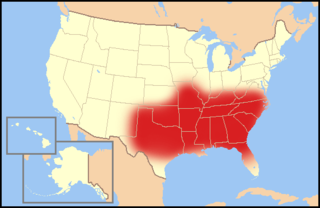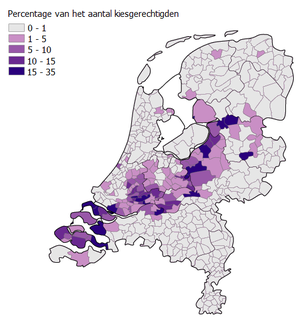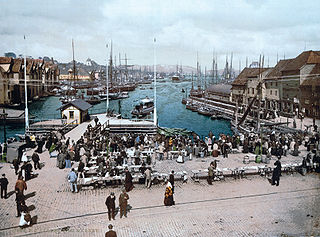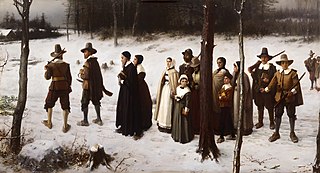See also
| This disambiguation page lists articles associated with the title Bible Belt. If an internal link led you here, you may wish to change the link to point directly to the intended article. |
Bible Belt is an informal term for a region in the southeastern and south-central United States in which socially conservative evangelical Protestantism is a significant part of the culture.
The term is also used more generically for a similar region in any country that is more conservative and religious than the country as a whole, such as:
| This disambiguation page lists articles associated with the title Bible Belt. If an internal link led you here, you may wish to change the link to point directly to the intended article. |
The Protestant Church in the Netherlands is the largest Protestant denomination in the Netherlands, being both Reformed (Calvinist) and Lutheran.
The Christian Union is a Christian-democratic political party in the Netherlands. The CU holds socially conservative positions on issues such as same-sex marriage, abortion and euthanasia and is Eurosceptic while maintaining progressive stances on economic, immigration and environmental issues. The party describes itself as "social Christian".
The Christian right or the religious right are Christian political factions that are characterized by their strong support of socially conservative policies. Christian conservatives seek to influence politics and public policy with their interpretation of the teachings of Christianity.
Christian fundamentalism began in the late 19th and early 20th centuries among British and American Protestants as a reaction to theological liberalism and cultural modernism. Fundamentalists argued that 19th-century modernist theologians had misinterpreted or rejected certain doctrines, especially biblical inerrancy, which they considered the fundamentals of the Christian faith. Fundamentalists are almost always described as having a literal interpretation of the Bible. A few scholars label Catholics who reject modern theology in favor of more traditional doctrines fundamentalists. Scholars debate how much the terms "evangelical" and "fundamentalist" are synonymous. In keeping with traditional Christian doctrines concerning biblical interpretation, the role of Jesus in the Bible, and the role of the church in society, fundamentalists usually believe in a core of Christian beliefs which include the historical accuracy of the Bible and all of the events which are recorded in it as well as the Second Coming of Jesus Christ.

The Bible Belt is an informal region in the Southern United States in which socially conservative evangelical Protestantism plays a strong role in society and politics, and church attendance across the denominations is generally higher than the nation's average.
P'ent'ay is originally an Amharic-Tigrinya language term for a Christian of a Protestant denomination, widely used in Ethiopia and among Ethiopians and Eritreans living abroad as a term for Evangelical Christians.

The Reformatory Political Federation was a minor Protestant Christian political party in the Netherlands.
Protestantism originated from the Protestation at Speyer in 1529, where the nobility protested against enforcement of the Edict of Worms which subjected advocates of Lutheranism to forfeiture of all of their property. However, the theological underpinnings go back much further, as Protestant theologians of the time cited both Church Fathers and the Apostles to justify their choices and formulations. The earliest origin of Protestantism is controversial; with some Protestants today claiming origin back to groups in the early church deemed heretical such as the Montanists.

High Church Lutheranism is a movement which began in 20th-century Europe that emphasizes worship practices and doctrines that are similar to those found within both Roman Catholicism and the Anglo-Catholic wing of Anglicanism. In the more general usage of the term it describes the general High Church characteristics of Lutheranism in the Nordic countries such as Sweden, Finland and the Baltics. The mentioned countries, once a part of the Swedish Empire, have more markedly preserved Catholic traditions.
A Bible college, sometimes referred to as a Bible institute or theological institute, is Protestant Christian institution of higher education which prepares students for Christian ministry with theological education, Biblical studies and practical ministry training.

The Bible Belt is a strip of land in the Netherlands with the highest concentration of conservative orthodox Calvinist Protestants in the country. It was named after the Bible Belt of the United States.

Lutheranism is present on all inhabited continents with an estimated 80 million adherents, out of which 74.2 million are affiliated with the Lutheran World Federation. A major movement that first began the Reformation, it constitutes one of the largest Protestant branches claiming around 80 million out of 920 million Protestants. The Lutheran World Federation brings together the vast majority of Lutherans. Apart from it, there are also other organisations such as the International Lutheran Council and the Confessional Evangelical Lutheran Conference, as well as multiple independent Lutheran denominations.
Religion in the Netherlands was predominantly Christianity between the 10th and until the late 20th century; in the late 19th century roughly 60% of the population was still Protestant and 35% was Catholic. Since then there has been a significant decline of Christianity—both Catholic but especially Protestant—so that nowadays Catholics outnumber Protestants and there is a secular majority, while also including a relatively common Muslim minority.

Christianity is the most adhered to religion in the United States, with 65% of polled American adults identifying themselves as Christian in 2019. This is down from 85% in 1990, 81.6% in 2001, and 12% lower than the 78% reported for 2012. About 45% of those polled claim to be members of a church congregation. The United States has the largest Christian population in the world, with approximately 167 million Christian adults, although other countries have higher percentages of Christians among their populations.

The Western Norway region of Norway showed the highest population growth rate in Norway in 2010, at 1.44%. The fertility rate in this region is higher than in other parts of Norway. The population as of 1 January 2010 was 1,263,464, with 37.7% of the population living in Hordaland, 33.8% in Rogaland, 19.8% in Møre og Romsdal, and 8.4% in Sogn og Fjordane. 60% of the population is under 40 years old, and 30% is under 20 years old. Many of the historical immigrants in Western Norway came from countries like Scotland, England, Netherlands, Germany, Denmark and Sweden. Western Norway is the part of Norway which has the largest immigration from the western world.

Protestantism is the second-largest form of Christianity with a total of 800 million to 1 billion adherents worldwide or about 37% of all Christians. It originated with the 16th century Reformation, a movement against what its followers perceived to be errors in the Catholic Church. Protestants reject the Roman Catholic doctrine of papal supremacy and sacraments, but disagree among themselves regarding the real presence of Christ in the Eucharist. They emphasize the priesthood of all believers, justification by faith alone rather than also by good works, and the highest authority of the Bible alone in faith and morals. The "five solae" summarise basic theological differences in opposition to the Roman Catholic Church.

Protestantism is the largest grouping of Christians in the United States with its combined denominations collectively accounting for about 43% of the country's population or 141 million people in 2019. Simultaneously, this corresponds to around 20% of the world's total Protestant population. America has the largest number of Protestants of any country in the world. Baptists account for about one third of American Protestants. The Southern Baptist Convention is the largest single Protestant denomination in the United States with one-tenth of American Protestants. Twelve out of the original Thirteen Colonies were Protestant, only one (Maryland) was Catholic.

The Reformed Political League was an orthodox Protestant political party in the Netherlands. The GPV is one of the predecessors of the Christian Union. The party was a testimonial party.

The Norwegian Bible Belt is a loosely defined southwestern coastal area of Norway, which is more religious than most of Norway. Typically, the definition covers Western Norway (Vestlandet) and Southern Norway (Sørlandet), which includes the counties of Rogaland, Hordaland, Sogn og Fjordane, Møre og Romsdal, Vest-Agder and Aust-Agder. However, the most urban areas, such as Stavanger, have become strongly secularised since the 1960s and are no longer considered part of the Bible Belt.